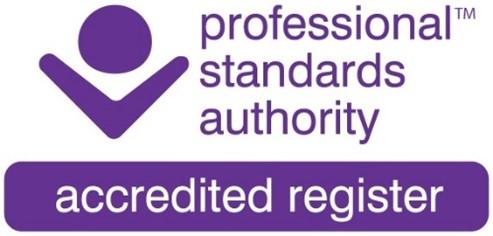The Professional Standards Authority
This article explores the Professional Standards Authority, what role it plays and how it can help employers in the NHS to improve regulation and safety standards. It also shares information on the Accredited Registers programme, which aims to give greater confidence in the safety and competence of unregulated roles.
What is The Professional Standards Authority (PSA)?
The PSA is an independent organisation, accountable to the UK Parliament.
Its remit is to protect the public through work with organisations that register and regulate people working in health and social care.
What does it do?
The PSA helps to protect the public by improving the regulation and registration of people who work in health and care. There are three main areas to the work of the PSA:
- reviewing the work of the UK’s ten professional regulators (such as the GMC and the NMC) to improve the way that healthcare practitioners are regulated
- accrediting organisations that register healthcare practitioners in unregulated roles through the Accredited Registers programme
- give policy advice to government and others, and encourage research to improve regulation.
What is the Accredited Registers programme?
There are many health and social care roles which can be carried out without mandatory registration with a statutory body. These include counsellors and psychotherapists, healthcare scientists, sports therapists, and public health practitioners.
Organisations which register healthcare practitioners working in unregulated roles can apply to the PSA for accreditation. The PSA will assess them and if they meet the standards, it will award the organisation and their registrants a quality mark.

The PSA quality mark shows that the Accredited Register and its registrants are committed to protecting the public and are working at a level of good practice. Each Register holds details of individuals who meet the required standards set for their profession, including standards of education and training, professional skills, competence, and behaviour.
How can I use the Accredited Registers programme?
You can see the full list of Accredited Registers and the occupations it covers on the PSA website.
You can also use the PSA’s Check a Practitioner tool to see if someone is registered.
When you include registration with a relevant Accredited Register within job descriptions, it increases the likelihood of attracting candidates who have met appropriate training standards and have committed to high standards of ethical and professional behaviours.
Why does the PSA recommend using practitioners on Accredited Registers in the NHS?
- Greater confidence in the safety and competence of the wider workforce because of a commitment to professional standards, safeguarding and ethical behaviours.
- Good practice is followed in delegation and referral. Doctors can refer to any practitioner on an accredited register, as set out in GMC guidance.
- It demonstrates good practice to the Care Quality Commission (CQC).
- There are robust processes for registration and complaints handling.
- Since the removal of anyone from an Accredited Register is shared with others in the programme, there is greater accountability for practitioners.
- Clear, up-to-date information about practitioners is available so that employers can make the right choice.
What is the PSA working on?
Alignment with NHS workforce needs
One of the PSA’s priorities is to ensure there is alignment with the needs and aims of the NHS workforce during a high-pressured and challenging time.
When new roles are introduced to augment the existing workforce, there can be concerns about regulation and how to mitigate risks of harm to the public and service users. In 2022 the PSA published the Safer care for all report which examines the major patient and service user safety issues from the perspective of professional regulation.
In March 2024 the PSA published its priorities to help the next UK government deliver better and safer care for all. Making care safer for all - a manifesto for change 2024 outlines the PSA’s recommendations to government to help tackle some of the big challenges within health and social care.
The Accredited Registers programme can provide a flexible solution and pragmatic alternative to statutory regulation or no regulation. New registers can be introduced at pace helping to streamline recruitment processes for employers in the NHS.
Review of Standards
In early 2025 the PSA launched a consultation and call for evidence, following the review of its Standards of Good Regulation and its Standards for Accredited Registers.
The consultation focused on whether there should be one set of standards or if the different sets should align more closely. Inclusion of culture and governance as part of the standards was also considered.
The consultation outcome report is now published and changes are expected to be implemented in 2026.
Strategic Plan 2026-2029
The PSA is seeking views on its draft strategic plan, which sets out the proposed approach to delivering its statutory duties as effectively and efficiently as possible over the coming years.
Right-touch regulation
The Professional Standards Authority (PSA) has published revised guidance on right-touch regulation, which is an approach applied in its work and encourages regulators to use as well.
The principles-based framework helps with deciding how best to protect the public by looking at the level of risk of harm and choosing the most effective and proportionate response, whether through regulation or other actions.
New guidance for regulators on rulemaking and fitness to practise
In June 2025 the PSA published guidance documents which outline regulatory powers to use a less adversarial and quicker ‘accepted outcomes’ process for dealing with complaints about healthcare professionals. Regulators will also have new powers to make and amend the rules governing the way they regulate.
Further information and both guidance documents are on the PSA website.
Further information
NHS Employers will continue to provide updates on any key developments in these areas.
For more information about the PSA please visit the website or contact Karen Fraser, Communications Manager, PSA: karen.fraser@professionalstandards.org.uk.


